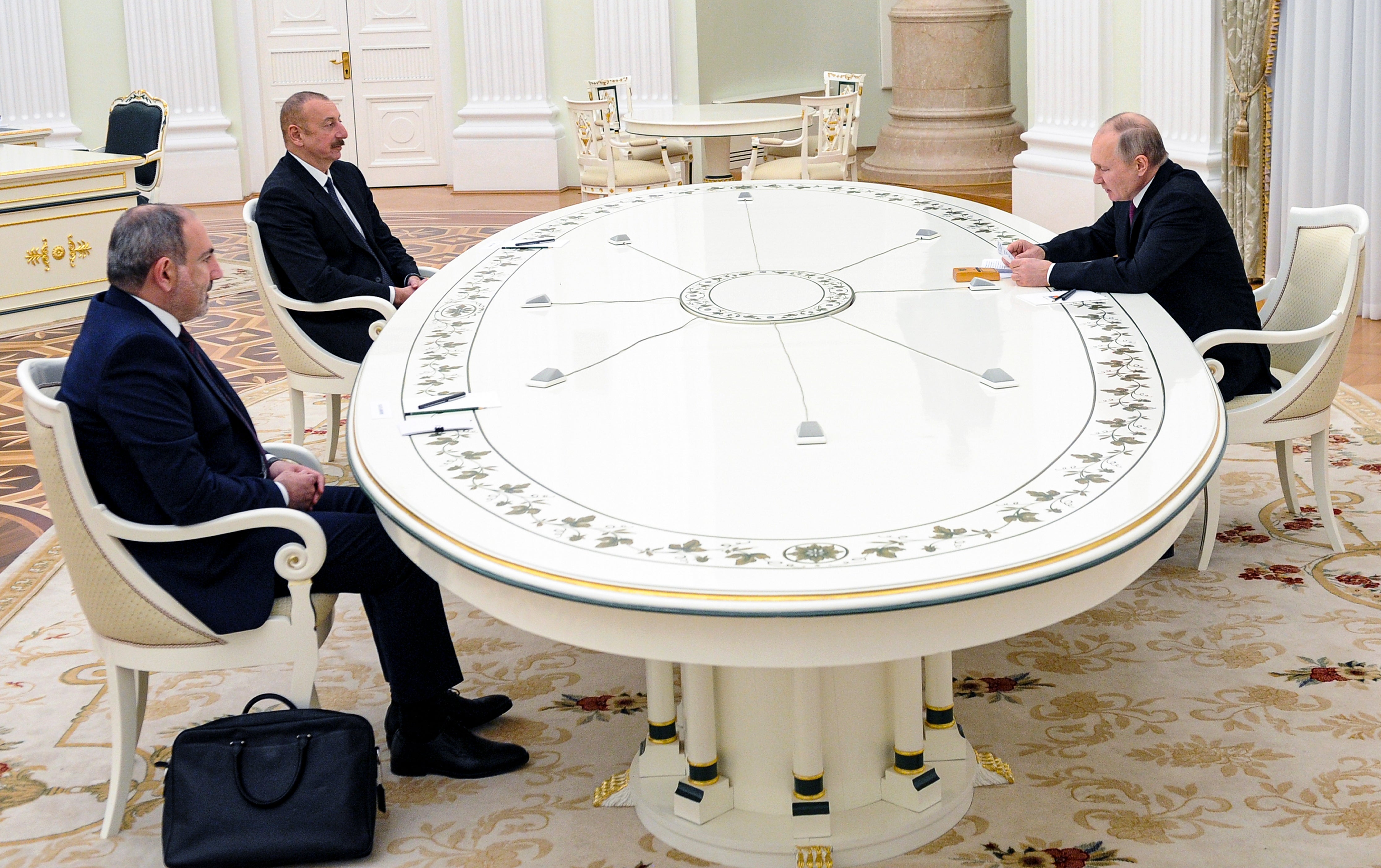Armenian, Azerbaijani leaders in Russia for talks
Russian President Vladimir Putin is hosting his counterparts from Armenia and Azerbaijan for talks in the Kremlin for the first time since a Russia-brokered truce ended weeks of fierce fighting over Nagorno-Karabakh

Your support helps us to tell the story
From reproductive rights to climate change to Big Tech, The Independent is on the ground when the story is developing. Whether it's investigating the financials of Elon Musk's pro-Trump PAC or producing our latest documentary, 'The A Word', which shines a light on the American women fighting for reproductive rights, we know how important it is to parse out the facts from the messaging.
At such a critical moment in US history, we need reporters on the ground. Your donation allows us to keep sending journalists to speak to both sides of the story.
The Independent is trusted by Americans across the entire political spectrum. And unlike many other quality news outlets, we choose not to lock Americans out of our reporting and analysis with paywalls. We believe quality journalism should be available to everyone, paid for by those who can afford it.
Your support makes all the difference.Russian President Vladimir Putin on Monday hosted his counterparts from Armenia and Azerbaijan, their first meeting since a Russia-brokered truce ended six weeks of fighting over Nagorno-Karabakh
As he sat down for talks in the Kremlin with Azerbaijani President Ilham Aliyev and Armenian Prime Minister Nikol Pashinyan Putin said that the peace agreement has been successfully implemented, “creating the necessary basis for a long-term and full-format settlement of the old conflict.”
The Nov. 10 peace deal ended 44 days of hostilities in which the Azerbaijani army routed Armenian forces and reclaimed control over large parts of Nagorno-Karabakh and surrounding areas.
Nagorno-Karabakh lies within Azerbaijan but had been under the control of ethnic Armenian forces backed by Armenia since a separatist war there ended in 1994. That war left Nagorno-Karabakh itself and substantial surrounding territory in Armenian hands.
Hostilities flared up in late September and the Azerbaijani military pushed deep into Nagorno-Karabakh and surrounding areas in six weeks of fighting involving heavy artillery and drones that left more than 6,000 people dead on both sides.
Under the peace deal, Russia has deployed about 2,000 peacekeepers to Nagorno-Karabakh for at least five years.
The peace deal was celebrated in Azerbaijan as a major triumph, but sparked outrage and mass protests in Armenia, where thousands repeatedly took to the streets demanding Pashinyan's resignation. Scores of protesters on Monday tried to block a highway linking the Armenian capital with the airport to prevent Pashinyan from traveling to Moscow but police dispersed them.
The Armenian prime minister has defended the deal as a painful but necessary move that prevented Azerbaijan from overrunning the entire Nagorno-Karabakh region.
Azerbaijan and its ally Turkey have shut their borders with Armenia ever since the Nagorno-Karabakh conflict erupted, a blockade that has weakened the economy of the landlocked country.
The Russia-brokered peace deal envisaged the reopening of transport routes, including a corridor linking Azerbaijan and its Nakhchivan exclave that borders Armenia, Turkey and Iran.
Putin noted Monday that senior officials from Armenia, Azerbaijan and Russia will set up a working group to discuss further moves to restore traffic links in the region.
Subscribe to Independent Premium to bookmark this article
Want to bookmark your favourite articles and stories to read or reference later? Start your Independent Premium subscription today.